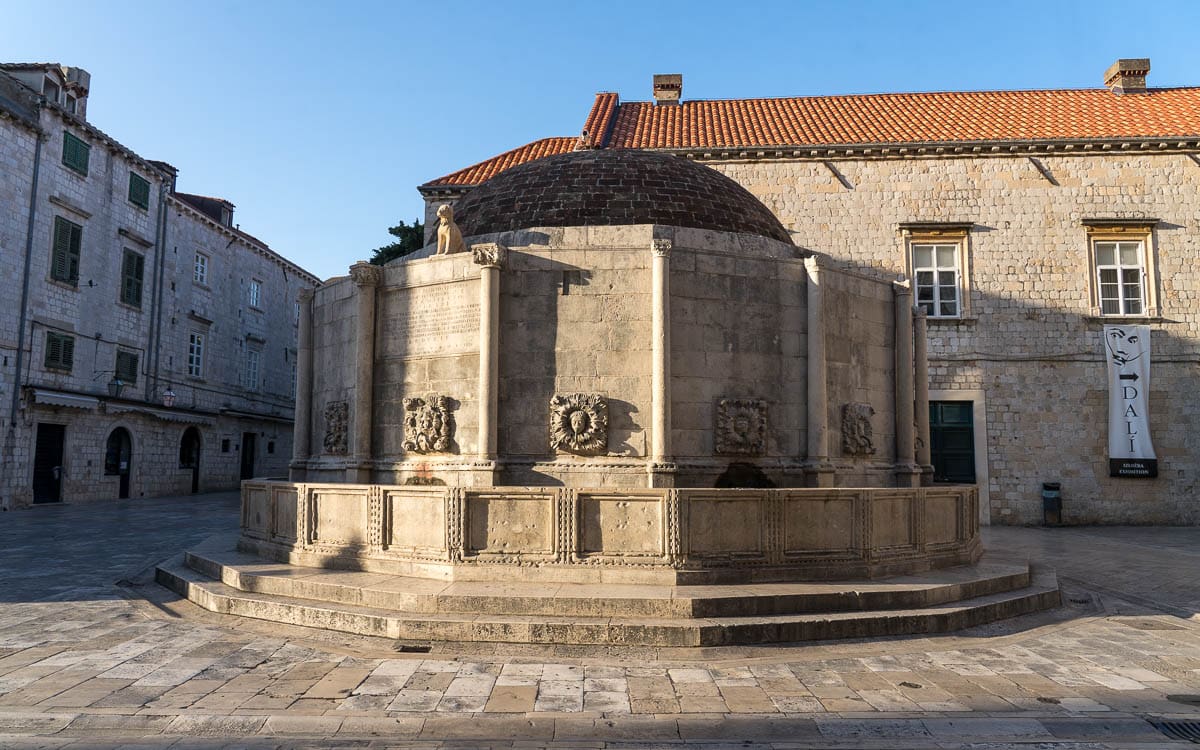
The Large Onofrio’s Fountain, on Stradun near Pile Gate, is a historic circular fountain and one of Dubrovnik’s most famous landmarks. For centuries, the ornate fountain has supplied water to the citizens of Dubrovnik and remains a testament to the city’s architectural and engineering skills.
Italian architect Onofrio della Cava designed and built the fountain between 1438 and 1440. He also created the Small Onofrio’s Fountain on the opposite side of Stradun.
The fountain was part of the city’s water supply system. In 1436, the government issued a rule to construct an aqueduct. The system used gravity to bring water from the Rijeka Dubrovačka in Šumet, 12 kilometers (7.4 miles) away, to the city. The aqueduct brought water directly to the city, culminating at the Large Onofrio’s Fountain.
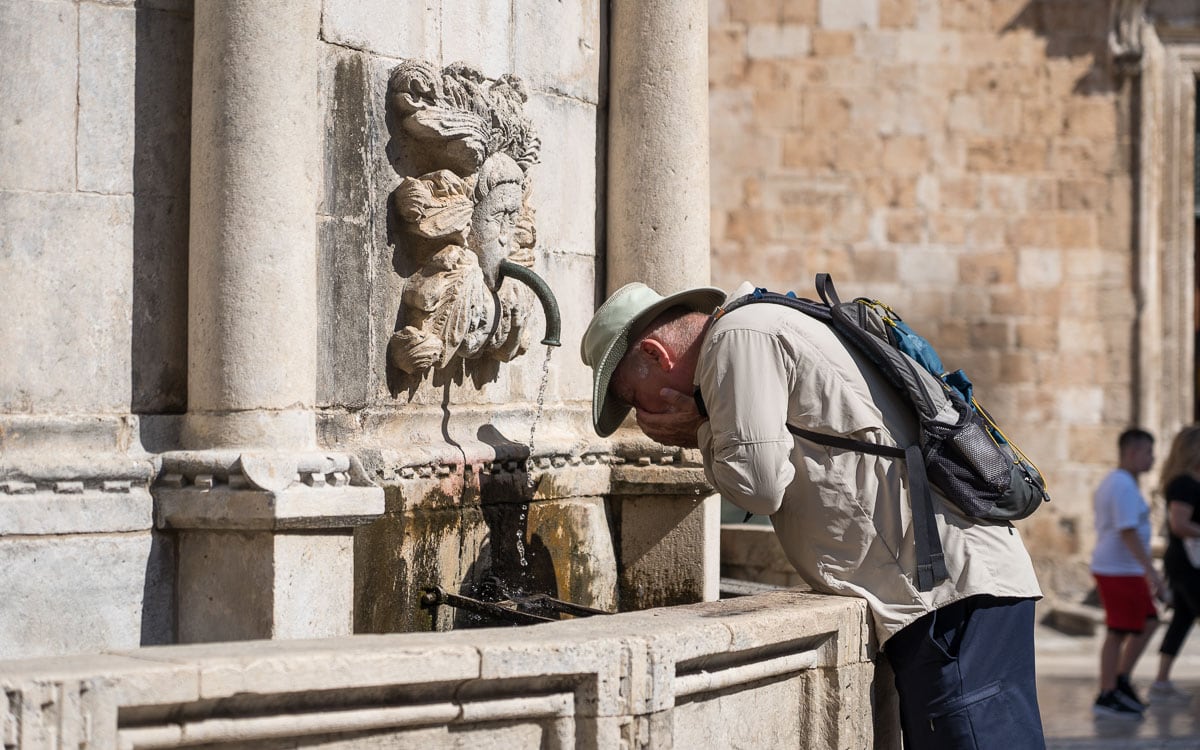
For nearly 600 years, locals used the fountain as their primary water source. At the end of the 19th century, the city installed a modern water supply system. Today, the fountain continues to supply clean drinking water to passersby.
Though built to supply water, the sixteen-sided fountain is also known for its artistic design, which features a large, circular basin and a central dome.
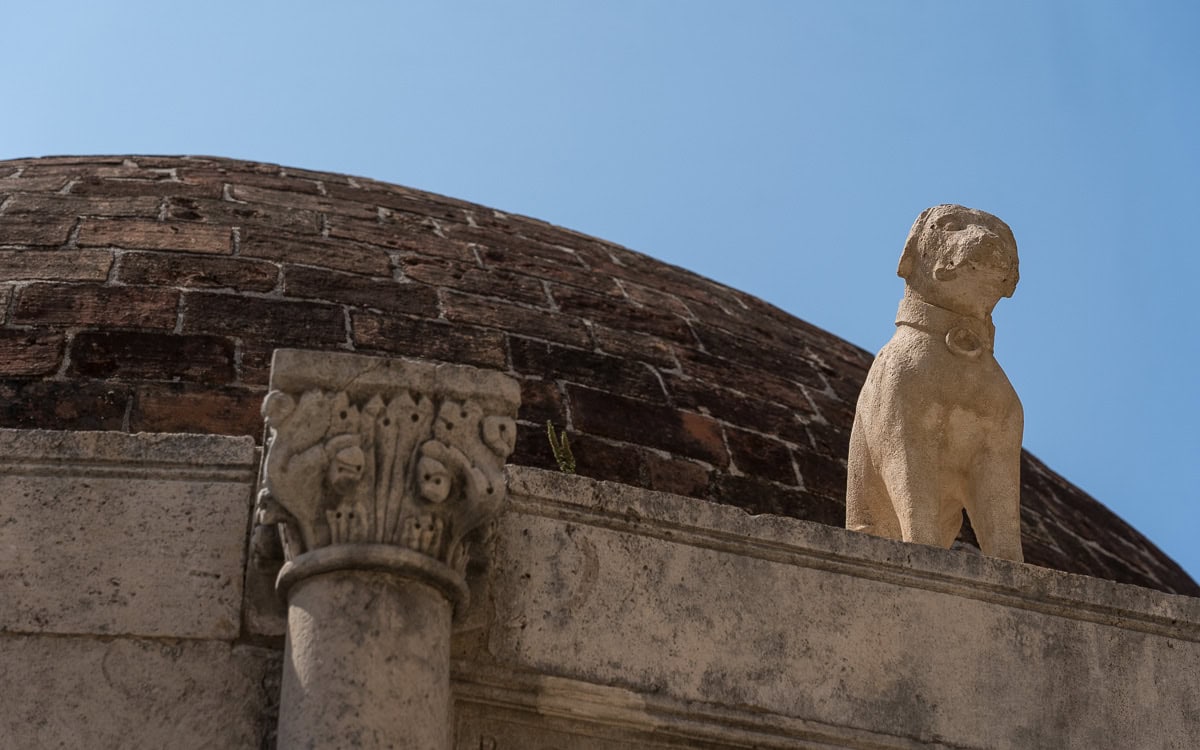
Initially, the fountain featured various statues, but all were lost or damaged over time, including during the 1667 Dubrovnik earthquake. In 2016, officials reinstalled a replica of a dog statue on the fountain.
Ornate maskeroni adorn the fountain’s sixteen sides. These unique stone-carved masked faces serve as water spouts, supplying fresh water.
Despite suffering damage during the earthquake, the fountain remains integral to Dubrovnik’s history and engineering prowess. While the fountain no longer serves as the primary water source, it maintains its historical function by providing locals and tourists with clean, cold, and refreshing water.
Large Onofrio's Fountain Information
Hours
24 hours
Admission
Free
Map
Nearby Sights
Siroka Street
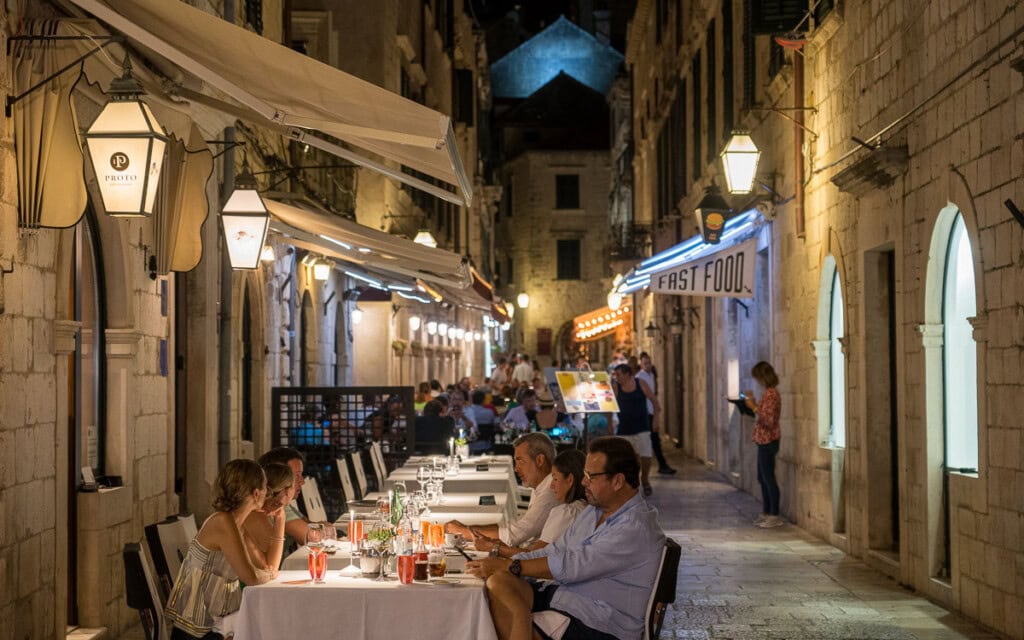
Siroka Street, or Široka ulica, is a picturesque and notably broad street located in the heart of Dubrovnik's Old Town. The street, today lined with numerous restaurants, cafes, and shops, was once an important thoroughfare providing quick access to the granary building located up the street.
Stradun
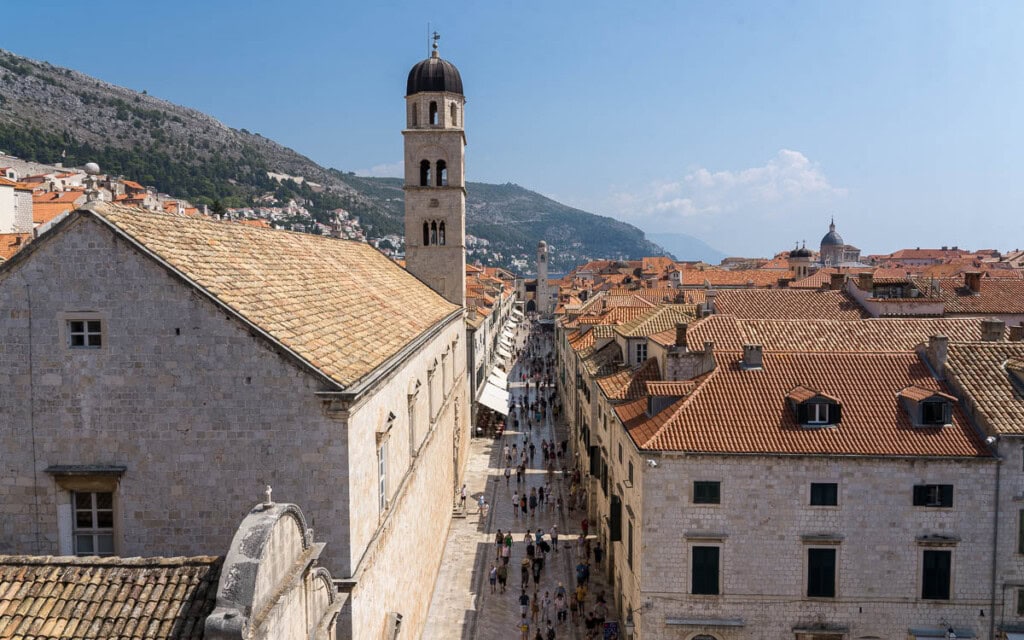
Stradun, officially Placa, is Dubrovnik's main street, stretching 300 meters from Pile Gate in the west to Luža Square in the east. Along the limestone-paved street, which cuts through the heart of Dubrovnik, are many historical sights, restaurants, bars, cafes, and shops. Along Stradun, you will find some of Dubrovnik's most important sites, including the Large Onofrio's Fountain, Sponza Palace, the Church of St.
Prijeko Street
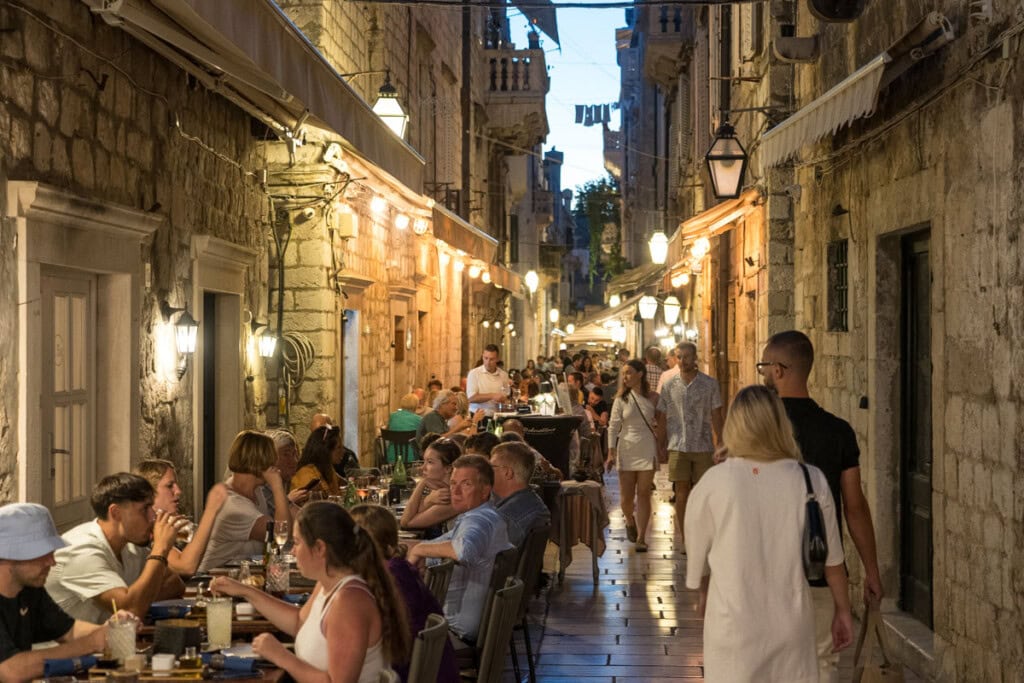
Prijeko Street is a charming, narrow medieval lane that runs through the heart of Old Town Dubrovnik, just north of Stradun, the main street. Known locally as Ulica Prijeko, the street is lined with Baroque-style houses. Today, it's home to a mix of restaurants, cafés, and boutique accommodations. Prijeko Street runs parallel to Dubrovnik's main thoroughfare, Stradun, about 50 meters uphill to the north.
Luža Square
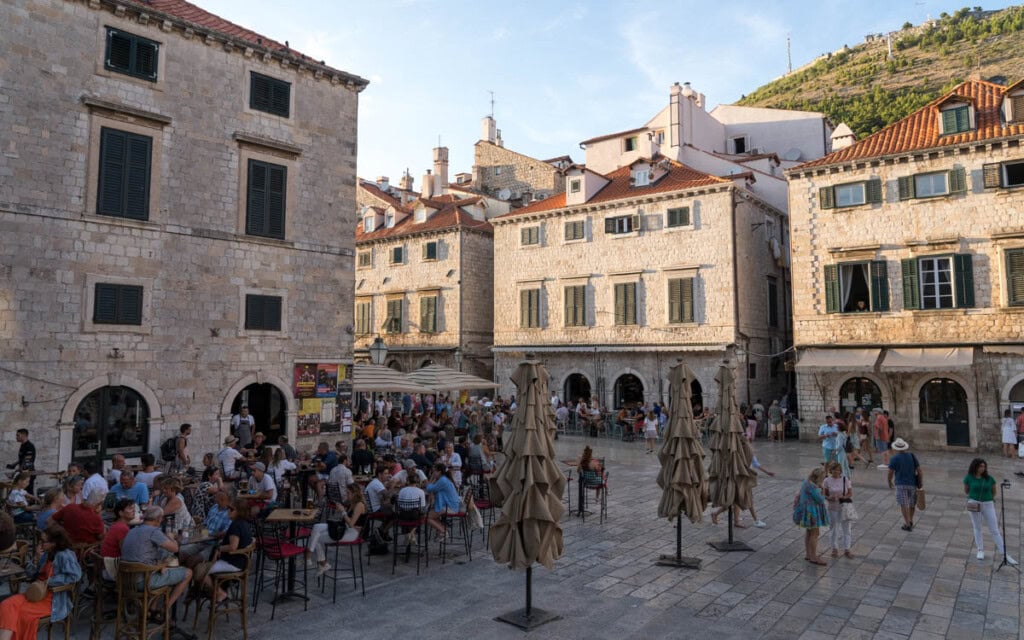
Luža Square, at the eastern end of Stradun, is one of Dubrovnik's busiest and most historically significant central squares. It has been an important meeting point for centuries and is home to some of the city's most significant landmarks, making it a must-visit spot in the Old Town. Since the Middle Ages, Luža Square has been a central meeting place for citizens of the Republic of Ragusa, present-day Dubrovnik.